Cold sores, often called “fever blisters,” are inflamed open lesions that develop around the mouth. These lesions are almost always the result of the herpes simplex virus (HSV).
There is no definitive cure for HSV, although research is progressing toward potential vaccines or future cures.
After an initial outbreak, factors such as stress, sun exposure, or hormonal shifts can prompt the virus to reactivate.
Both over-the-counter and prescription options aim to ease the pain and inflammation associated with cold sores. Increasingly, researchers are looking at whether natural compounds in some essential oils might also help treat cold sores.
Some herpes strains have developed resistance to standard antiviral drugs, and essential oils could offer activity against resistant variants.
Evidence supporting essential oils’ effectiveness against cold sores is still limited and under active study. Use them cautiously and let your healthcare provider know if you opt to try one.
The Food and Drug Administration (FDA) does not regulate essential oil manufacturing. Check brand reputations for quality, purity, and safety before use.
Note
Essential oils are highly concentrated plant extracts. They are not intended for ingestion; some are toxic if swallowed.
These oils are meant for topical use or for diffusion and inhalation in aromatherapy. Always mix essential oils with a carrier oil—such as sweet almond, coconut, or jojoba oil—before applying to the skin. A common dilution is 3 to 5 drops of essential oil per 1 ounce of sweet almond or olive oil.
If you experience any adverse effects from an essential oil, discontinue use immediately.
Which essential oils may help with cold sores?
1. Tea tree oil
Tea tree oil has antiviral, antiseptic, and anti-inflammatory qualities that may be helpful for cold sores.
A 2009 study indicated tea tree oil had potential antiviral activity against HSV. That study was conducted in vitro on isolated samples, so it did not establish clinical potency.
You can apply diluted tea tree oil to a cold sore with a clean cotton swab, but be sure to mix it with a mild carrier oil to avoid irritating the skin.
Limit tea tree oil applications to no more than twice daily to reduce the risk of skin irritation.
2. Peppermint oil
Peppermint oil also possesses antiseptic properties.
Peppermint was examined alongside tea tree in the same in vitro study and showed comparable outcomes.
A 2003 lab study found peppermint oil could reduce symptoms of activated herpes strains, even some resistant to conventional drugs.
Apply a diluted peppermint oil preparation to the affected area at the first tingle to see if it eases symptoms.
Shop for peppermint oil online.
3. Anise oil
Anise oil has been reported in a 2008 study to help inhibit cold sore activity.
A bovine study showed anise oil could limit viral growth, and another in vitro study suggested antiviral effects possibly linked to β-caryophyllene, a compound found in many essential oils.
4. Oregano oil
Oregano oil is a commonly suggested home remedy for cold sores, and for good reason. As early as 1996, oregano’s effects on HSV were found to be notable.
A later study reported similar antiviral properties, likely due to its high carvacrol content, a compound abundant in aromatic plants.
Gently rubbing diluted oregano oil on the lesion with sterile cotton may help reduce the sore’s size and inflammation.
For related guidance, you may also want to read about oregano oil for cold.
5. Lemon balm oil
Lemon balm oil was shown in a 2014 lab study to block herpes virus entry into cells by about 96 percent for some drug-resistant strains. Researchers continue to study exactly how lemon balm affects herpes cells.
Because lemon balm can penetrate skin layers and act on the virus directly, you may apply the diluted oil to a cold sore up to four times a day.
Shop for lemon balm oil online.
6. Thyme oil
Thyme oil is a strong agent with antiviral activity against HSV, as indicated by a lab study. Keep in mind that if the initial trigger for reactivation — stress, fever, or prolonged sun exposure — remains, the virus can flare up again despite treatment.
7. Ginger oil
Components of ginger oil were found to lessen cold sore symptoms in a 2014 lab study.
Ginger oil produces a warming sensation on the skin and may help soothe irritation from a cold sore. Applying a diluted blend topically may support healing.
You might blend ginger oil with some of the other oils listed, using a carrier oil as the base.
8. Chamomile oil
A study identified chamomile oil as a potential antiviral against HSV and possibly effective against drug-resistant strains.
Chamomile also has soothing effects on skin. Applying diluted chamomile oil as soon as you sense a cold sore beginning is likely the most effective approach.
Shop for chamomile oil online.
9. Sandalwood oil
Sandalwood oil is prized for its rich aroma, and research suggests its constituents may also act against the cold sore virus, according to a lab study.
Apply diluted sandalwood oil to a lesion when it appears. Because sandalwood’s scent is strong and it can potentially irritate the nose or sensitize skin, consider mixing it with another oil from this list and a carrier oil before use.
Shop for sandalwood oil online.
10. Eucalyptus oil
Cell-based testing in a lab suggested eucalyptus oil might shorten the duration and lessen the severity of cold sores.
Always dilute eucalyptus oil thoroughly prior to application, and restrict use to four times daily.
Shop for eucalyptus oil online.
Are there risks when using essential oils for cold sores?
When applying essential oils topically, keep several precautions in mind.
Mixing essential oils with a gentle carrier oil like coconut or jojoba will help prevent further irritation to skin already inflamed by a cold sore.
Excessive use of essential oils can damage the epidermis (outer skin layer) and impede healing.
Confirm you are not allergic or sensitive to any oil components before application. Perform a patch test on a different skin area before using an oil on an open cold sore.
Possible adverse effects include stinging, burning, or bleeding at the sore site. Cease use immediately if you notice any negative reaction.
Takeaway
Keep in mind that essential oil claims are not necessarily evaluated by the FDA.
If your cold sores persist despite treatment, consult your doctor about preventive or alternative medical therapies.



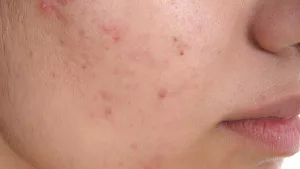









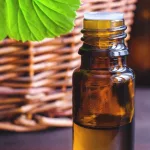

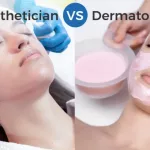
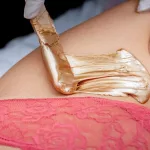





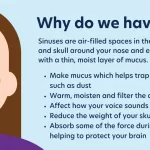



Leave a Reply
You must be logged in to post a comment.